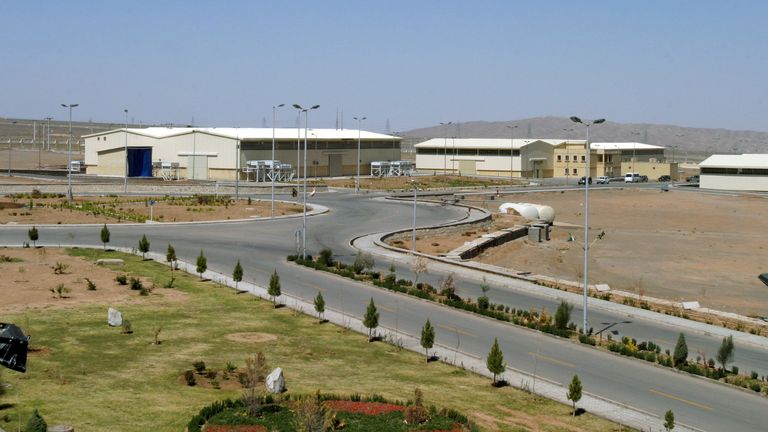Iran has blamed Israel for a sabotage attack on one of its underground nuclear facilities.
Iranian officials warned that they would take revenge over the attack, which damaged centrifuges at the Natanz nuclear facility.
A blackout on 9 April was initially blamed on a power failure but officials later said it was an act of “nuclear terrorism”.
“The answer for Natanz is avenging Israel,” said Saeed Khatibzadeh, spokesperson for Iran’s foreign minister.
“Israel will receive its answer through its own path.”
The facility, which is 125 miles (200km) south of Tehran, had just fired up advanced centrifuges which can enrich uranium more quickly.
Mr Khatibzadeh’s remarks represent the first official accusation levelled against Israel over the incident on Sunday that cut power across the facility.
Israel has not claimed responsibility for the sabotage, though Israeli media said that it was the result of a cyber attack.
Iranian foreign minister Mohammad Javad Zarif warned Natanz would be reconstructed with more advanced machines – that could risk ongoing talks in Vienna with world powers about saving the Iranian nuclear deal.
The accusations will heighten tensions between Iran and Israel, already engaged in a shadow conflict across the wider Middle East.
Israeli Prime Minister Benjamin Netanyahu has vowed to do everything in his power to stop the faltering 2015 international nuclear deal with Iran.
This is not the first time the site has been subject to attacks, which is Iran’s main centre for uranium enrichment.
There was an explosion at its centrifuge assembly plant last July that authorities later described as sabotage.
Natanz was also targeted with the Stuxnet computer virus in 2010.
The plant is now being rebuilt inside a nearby mountain, to help withstand enemy airstrikes.
Since former US president Donald Trump withdrew from the Iran nuclear deal in 2018, Tehran has begun enriching uranium at up to 20% purity.
That is a technical step away from weapons-grade levels of 90%.
The US has recently taken steps towards re-joining the accord.
Iran has previously said its nuclear programme is for peaceful purposes, but world powers remain concerned about its potential ability to make an atomic weapon.


